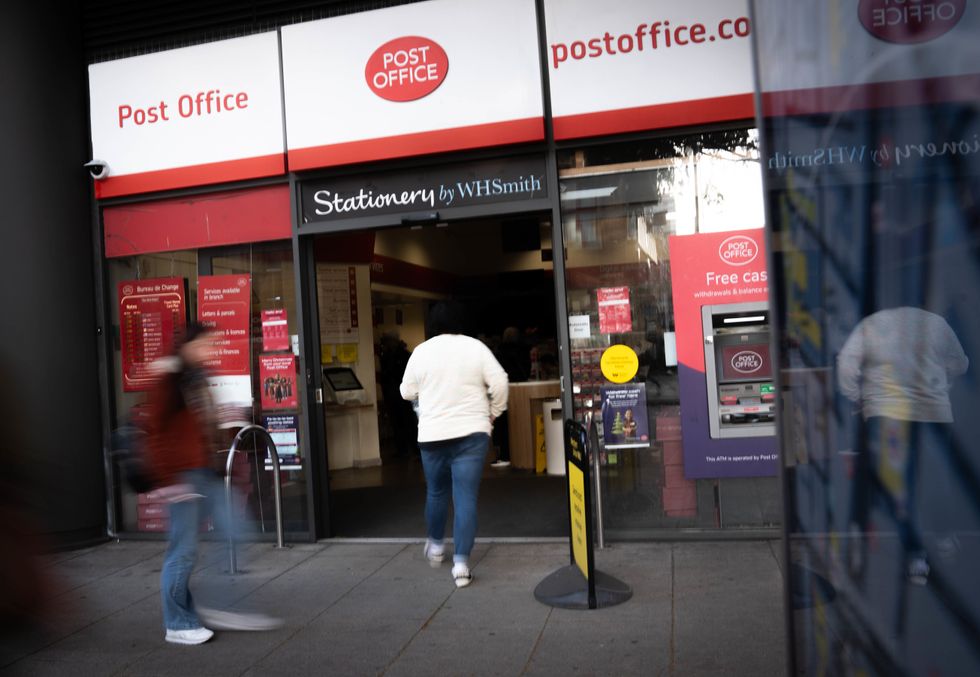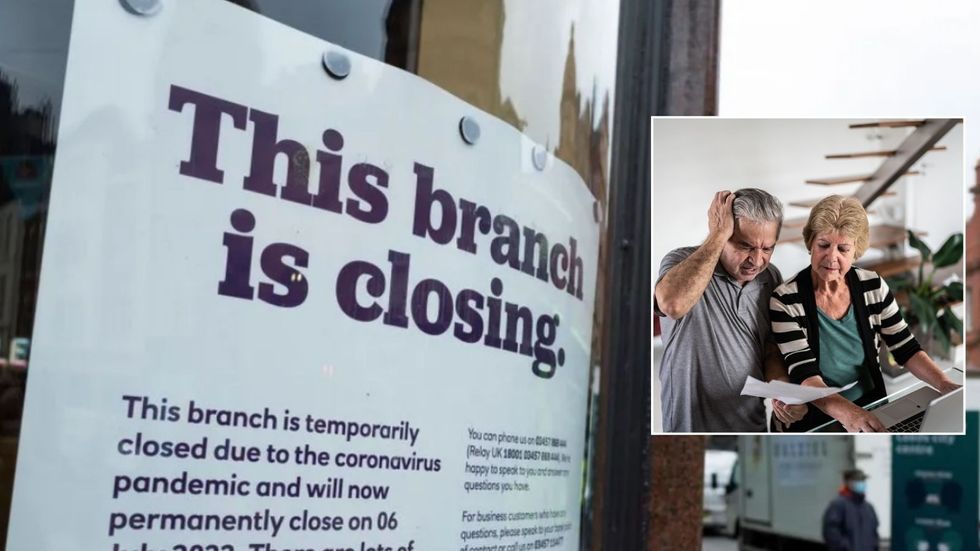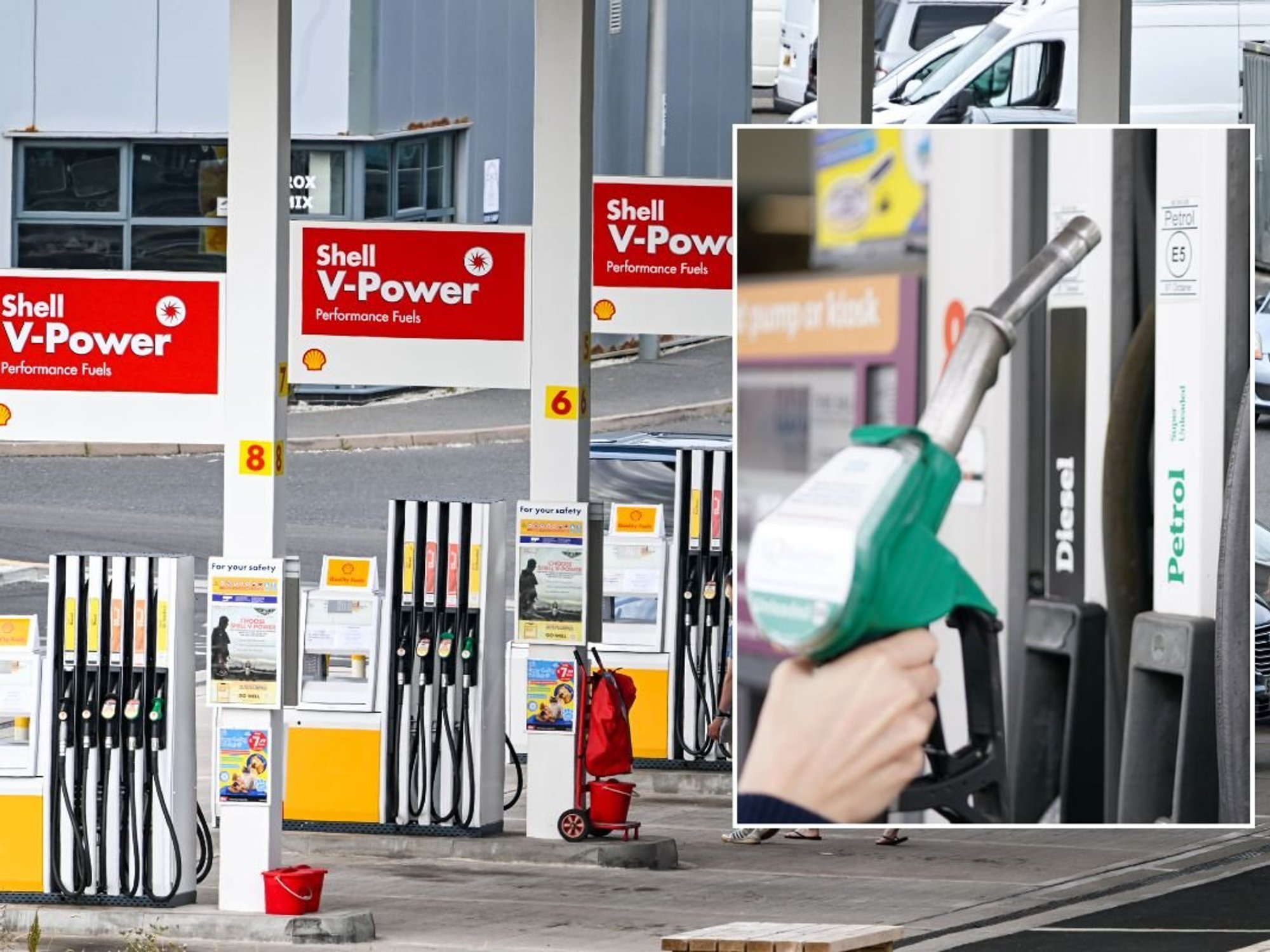Post Office branches at risk of closure as review slams 'unsustainable' funding model

GB NEWS

Bank branch closures have become the norm across Britain's high street but there is also concern over the future of the Post Office
Don't Miss
Most Read
Latest
Post Office branches across the UK are at risk of closure after a review found the current funding model for the organisation remains "unsustainable". The Government has claimed that transforming the postal company into an employee-owned mutual organisation cannot be considered until 2030 at the earliest.
According to a new Green Paper on the state-owned firm's future, the current "level of Government funding to the organisation is unsustainable in the long term".
The Department for Business and Trade said the current level of taxpayer funding for the Government-owned organisation is unsustainable and launched a three-month consultation on potential reforms.
Among the proposals is the possibility of scrapping the requirement to maintain at least 11,500 branches across the UK, which has become "more challenging and costly" due to rising labour costs and declining visitor numbers.

Post Office branches could close due to the organisation's "unsustainable" funding model
| PAThis review marks the first comprehensive examination of the Post Office in 15 years and comes in the aftermath of the Horizon IT scandal. The Green Paper outlines that mutualisation could see the Post Office collectively owned by its members.
One option limiting membership to postmasters and franchisees, while another could include customers, employees and communities. However, the Government stated the Post Office "should be financially and operationally stable before mutualisation can be considered", requiring it to be profitable and cash-generative.
As it stands, the organisation is currently replacing its Horizon IT system following the scandal in which approximately 1,000 people were wrongly prosecuted and convicted over shortfalls caused by faulty software.
The DBT said implementing mutualisation would be a "complex, time consuming and potentially expensive process" that could take an additional three years beyond 2030 to complete.
For the 2023-25 financial year, the Post Office recorded a trading profit of £22million but is projected to swing to a trading loss of £24 million for the current year and £60million in 2025-26.

The Post Office and Cash Access UK has opened dozens of banking hubs across the UK
| POST OFFICEThe DBT highlighted that increased subsidies have been required in recent years as the branch network faces mounting pressures from rising labour costs whilst visitor numbers continue to decline.
Under one proposed option, the minimum branch requirement could be abolished, allowing the organisation to address loss-making branches and concentrate on larger, full-service sites.
This approach would still require ensuring that at least 99 per cent of the population remains within three miles of a full-service branch. The Government emphasised that the Post Office should ultimately be able to self-fund investment in its network and postmasters.
Furthermore, the Government is also considering a charter model similar to the BBC and universities, which would establish the organisation's public purpose and operational rules as an alternative long-term ownership structure.
Despite the financial challenges, the Government plans to award a new subsidy package worth £118million to fund a transformation plan and further investment aimed at improving services and the Post Office's financial position.
Upon publication of the Green Paper, Post Office minister Gareth Thomas said: "Post Offices continue to be a central part of our high streets and communities across the country."
He added: "However, after 15 years without a proper review, and in the aftermath of the Horizon scandal, it's clear we need a fresh vision for its future." Thomas suggested the Post Office has a "considerable opportunity to do more in terms of providing services".
LATEST DEVELOPMENTS:
 The closure of local branches will leave many struggling to access in person services | GETTY
The closure of local branches will leave many struggling to access in person services | GETTYThomas stated: "If we could improve the way in which the banks work with the Post Office, perhaps we could see a much more significant role for the Post Office in terms of the provision of banking services on far more high streets up and down the UK."
Post Office chief executive Neil Brocklehurst said: "We now have a once-in-a-decade opportunity to have a national conversation about the future of our post offices and their role in supporting communities across the UK."
He added: "This Government consultation is a vital part of shaping what the future of Post Office could, and should, look like." However, Communication Workers Union general secretary Dave Ward criticised the Green Paper for "prioritising further cost-cutting and offering no vision for its future".
Ward said: "Successive governments have failed the Post Office, its workers and customers choosing to use government subsidies for planned redundancies, closures and so-called transformation plans that are nothing more than managed decline."
He said the CWU was advocating a "joint venture ownership model" that would reunite the Post Office and Royal Mail whilst giving postmasters greater influence over the company's governance and direction.










